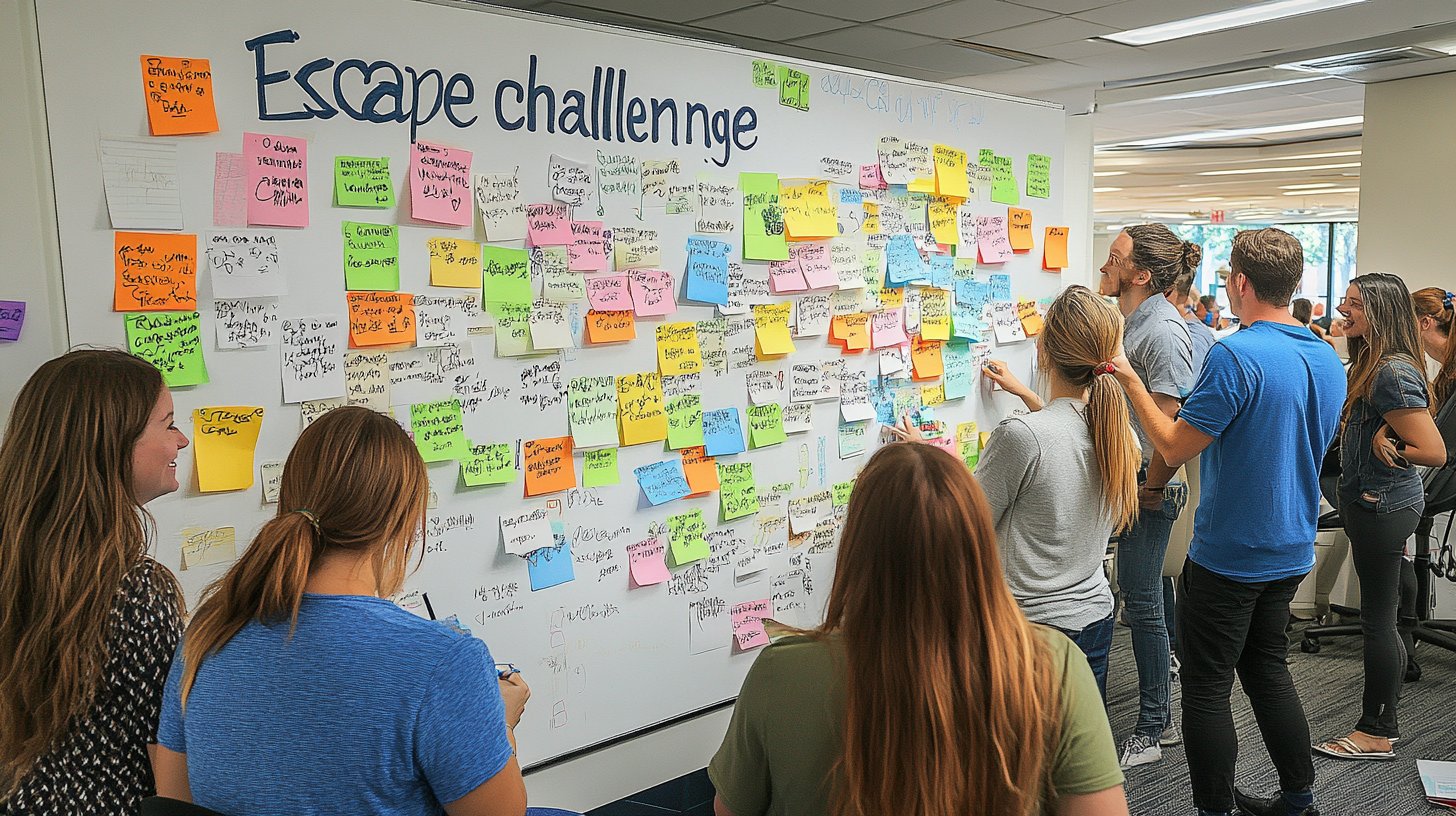Are you looking for the perfect moment to strengthen team cohesion and boost motivation? Every company experiences phases where collaboration, communication, or team morale is challenged. These moments call for concrete solutions to unite employees and align common goals.
Your question is valid: when should you plan a team-building event to achieve tangible results? The answer depends on the challenges you face. At the beginning of the year to align ambitions, after a transitional period to provide reassurance, or to celebrate a completed project—these strategic choices make all the difference.
By identifying these specific needs, you create a positive dynamic that supports your employees. Their well-being and engagement are your priorities. Together, let’s explore key moments to transform each initiative into a real opportunity to strengthen your team.
Ideal Times to Plan a Team Building Event
Beginning of the Year
Planning activities at the start of the year is often a smart choice. This period is an ideal opportunity to define annual goals and bring employees together after the holidays. A team building event in January or February re-energizes and motivates teams to start the year off strong.
Integrating new hires is also easier during this time. These events help new employees get to know their colleagues and quickly feel comfortable in their roles.
After a Phase of Change
Transitional periods are often challenging for an organization. Whether it’s internal reorganizations, leadership changes, or mergers, these moments can create uncertainty among employees. Organizing a team building event after these phases helps reassure the team, strengthen bonds, and clarify new roles.
These sessions also provide a space to address concerns and improve internal communication. Better mutual understanding helps reduce stress associated with changes.
Strategic Moments
Before or After a Key Project
The success of significant projects often depends on the quality of collaboration within the team. Planning a team building event before the launch of a major project boosts solidarity and psychologically prepares team members to work together efficiently.
Organizing a team building session after completing an important project also has benefits. It serves as a collective reward to celebrate success, fostering recognition and professional satisfaction.
During Company Anniversaries
Company anniversaries are a perfect occasion to organize team building events. These festive moments strengthen the sense of belonging and remind employees of the organization’s history and values.
These celebrations also help create shared memories while highlighting collective accomplishments, further enhancing team cohesion.
Types of Team Building Activities
Sports and Competitive Activities
Sports activities are an excellent way to strengthen bonds between colleagues. They require constant coordination and collaboration. Here are some ideas:
- Soccer or basketball tournaments
- Relay races
- Group hikes
These activities stimulate healthy competition and encourage participants to recognize that every member plays a key role in collective success.
Creative and Artistic Workshops
Creative workshops are perfect for unleashing imagination and encouraging innovative thinking. Beyond their fun aspect, they allow employees to discover new talents and skills in their colleagues.
Examples of creative workshops:
- Painting or sculpting sessions
- Team cooking workshops
- Creating short films or improvised plays
These activities foster a different approach to problem-solving and strengthen confidence in oneself and others.
Less Recommended Periods
Peak Periods
Avoid scheduling team building events during peak periods—it might seem obvious. During these times, professional pressure and obligations make it difficult for employees to participate actively and relaxed. Stepping back is challenging when deadlines are looming.
Another major constraint is the availability of key team members. Some employees may be indispensable to operational processes, making it nearly impossible for everyone to attend.
School Holidays
During school holidays, many employees plan family vacations. Organizing a team building event during these times risks low participation. Respecting these periods allows everyone to fully enjoy moments of relaxation with their loved ones.
Additionally, holding team building events outside these times ensures better productivity, as employees generally return even more motivated after well-deserved breaks.
Tips and Tricks for a Successful Team Building Event
Practical Advice
To optimize a team building event, several elements should be considered. Ensure the chosen activity aligns with the tastes and interests of most employees. A preliminary survey can help identify everyone’s preferences.
Preparing the event well in advance also ensures success. Consider schedules and try to find a date when most employees will be available. Logistics should also be carefully planned: transportation, necessary equipment, etc.
The Importance of Debriefing
A frequently overlooked but essential element of team building is the post-activity debriefing. This is an opportunity to collectively reflect on what was learned and how to apply these lessons within the organization.
Encourage future collaboration by allowing participants to share their feelings and observations. Constructive feedback provides a foundation for improving future team-building initiatives aimed at fostering team cohesion.








